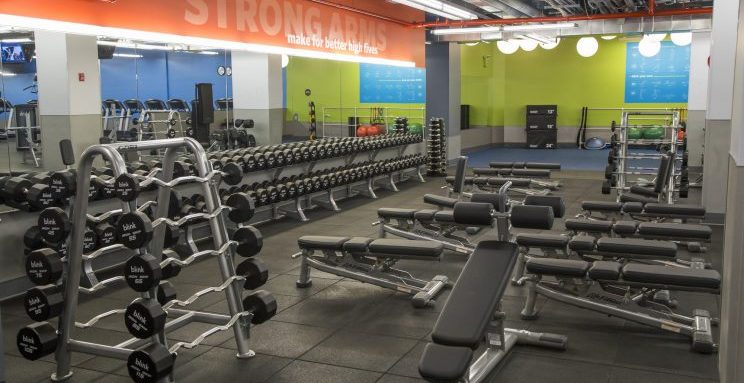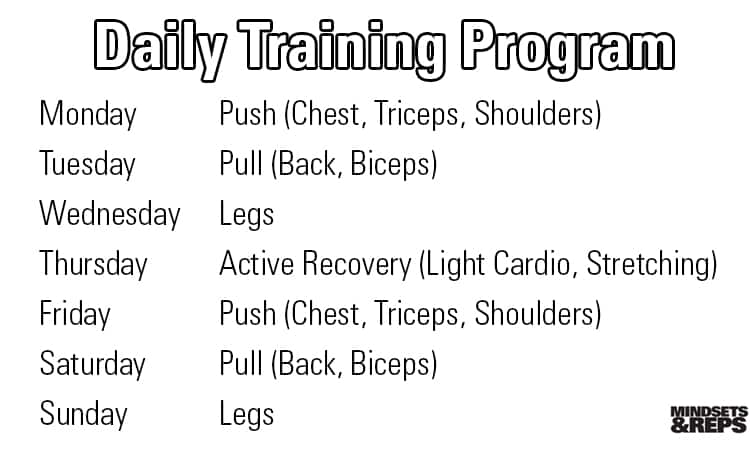
The word overtraining is thrown around quite often in the fitness community. Overtraining is actually an official term used by health experts with parameters and symptoms describing it.
Overtraining syndrome is a condition that lasts for months which not only leads to decreases in performance but also symptoms such as but not limited to insomnia, anxiety, depression, tachycardia, and an impaired immune system. The Journal of Sports Health goes into detail on overtraining syndrome including potential mechanisms that occur within the body which may cause it.
The fear with many people who go to the gym on a regular basis is that they may be overtraining. But overtraining is actually quite rare, and many people confuse overtraining with overreaching (more below).
Some people are on the other end of the spectrum. They go to the gym 5, 6, maybe even 7 times per week and feel fine but are told that they’re overdoing it.
If the training program is structured properly, an individual can work out every day without issue. However, this should only be limited to intermediate and advanced trainees.
Overreaching vs. Overtraining
Overreaching is a short term decline in performance due to prolonged exercise. If you’ve been working out consistently for a long period of time, there were probably moments where you felt a little tired and sluggish in the gym. If you took a day or two off, increased your calories, or had a cheat meal then felt better for the next workout, you were likely just in a short term overreaching phase.
Overreaching isn’t necessarily a bad thing. Some overreaching is needed to build muscle. The only way to build muscle is to train hard and sometimes push the body to its limit. Muscle is built as an adaptation to hard training; it won’t grow unless it is stimulated enough.
Overtraining is a severe case which requires weeks if not months off the gym to recover from. True overtraining is a rare phenomenon. MMA fighters train 2 to 3 times per day, travel, cut weight, fight, and still might be back in the gym in a week depending on the damage done in the fight. If they’re not overtraining it’s likely you aren’t.
Reasons Not to Train Every Day
As obvious as it may sound, beginners and some intermediates should refrain from going to the gym every day, but perhaps not for the reason you think. It’s not because they can’t handle it; if they’re young and enthusiastic they probably can. It’s because of a strategic issue.
If a beginner trains every day, they will build muscle, there is no doubt about that. But what happens when they plateau? By training every day there is no more opportunity within that program for muscle growth. The smarter strategy would be to maximize the muscle gains from working out 3 or 4 days per week. Then, when an individual plateaus, they can add the 5th or 6th day of training and begin to see results again. The person who trains every day from the beginning would have to be in the gym multiple hours or even train twice per day when they hit a sticking point.

Who Can Work Out Every Day
Advanced trainees not only have a great deal of experience in the gym, but have also developed a connection with their body others may not have. There is no official designation for what constitutes an advanced trainee, but most would consider it to be 5 or more years of consistent training. At this stage of training they know when to push and when to back off, which is why they are a candidate to train daily if they choose to do so.
Training every day doesn’t mean Ronnie Coleman style 800lb squats on the regular. Some days may be like that, but some days may be for active recovery. Active recovery involves going through the motions a little bit. The purpose is not to fatigue muscles, but to get blood flowing throughout the body. This may include light cardio, calisthenics, or stretching.
A properly structured routine will allow for daily training. It can be achieved with split training (one body part per day), full body training, or a hybrid of the two. But as mentioned, you need to know when to back off. Powerlifters are excellent at this. Their programs are structured to include deload weeks, where they purposely lift lighter loads for recovery purposes. They may not lift every day, but the principle of the deload week is what’s important, not the application.
Is There an Advantage to Working Out Every Day
We’ve concluded that you can train every day, but should you? A meta-analysis by famed hypertrophy researcher Brad Schoenfeld showed that training a muscle group twice per week was superior to training it once per week. Beyond that remains to be seen, but others have hypothesized that higher training frequency may be better for muscle growth. Another researcher, Menno Henselmans, has stated that he trains full body every day.
Personally, I like to have one day off per week, but there have been instances where I trained 7 or more consecutive days. This was especially the case when I was younger but also not a beginner; you couldn’t keep me out of the gym.
This is also why I don’t like to plan rest days. For example, let’s say you train 6 days per week and plan to take off every Wednesday. But maybe you wake up on Wednesday feeling great. Should you take off because you decided arbitrarily that you always take off Wednesdays? The better strategy would be to take off one day per week at your own discretion since it gives you the freedom to choose based on your energy levels. Maybe one night you don’t sleep well, or you get caught up at work. This freedom allows you to get the most out of each training day.
The title of this article is also vague in the sense that it says go to the gym rather than lift weights. A training program involving cardio is even easier to structure. Cardio is unlikely to negatively impact weightlifting performance or recovery, if anything it may enhance it.
For intermediate or advanced trainees looking to implement a daily routine, an example is outlined below.

References
Kreher JB, Schwartz JB. Overtraining syndrome: a practical guide. Sports Health. 2012;4(2):128-138. doi:10.1177/1941738111434406
Schoenfeld BJ, Ogborn D, Krieger JW. Effects of Resistance Training Frequency on Measures of Muscle Hypertrophy: A Systematic Review and Meta-Analysis. Sports Med. 2016;46(11):1689-1697. doi:10.1007/s40279-016-0543-8
